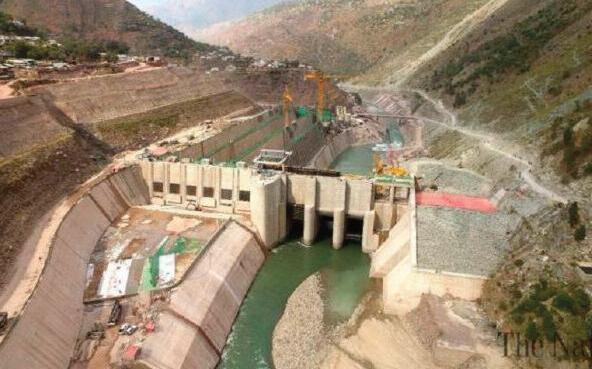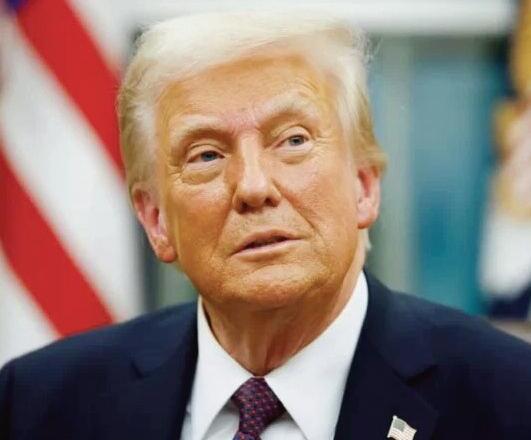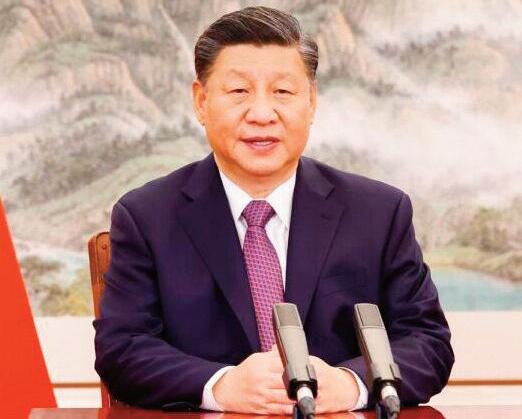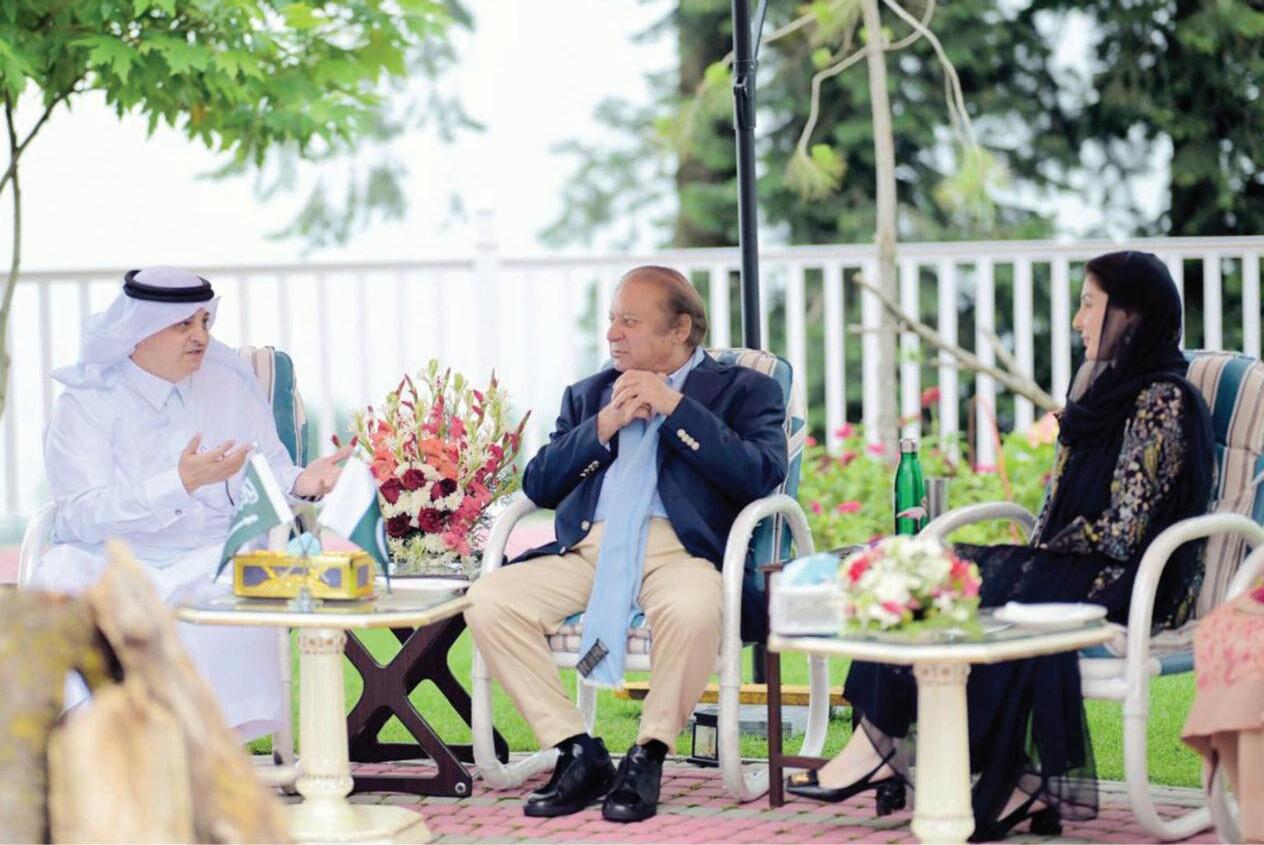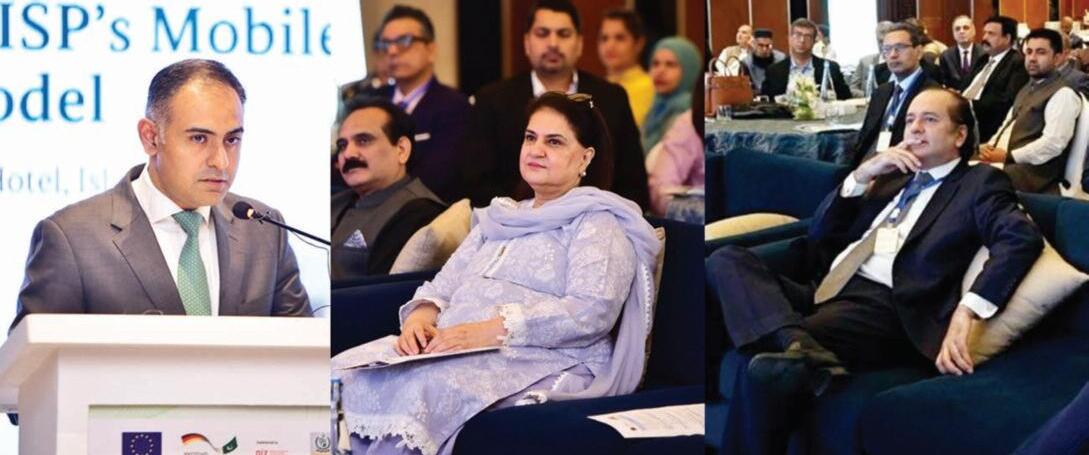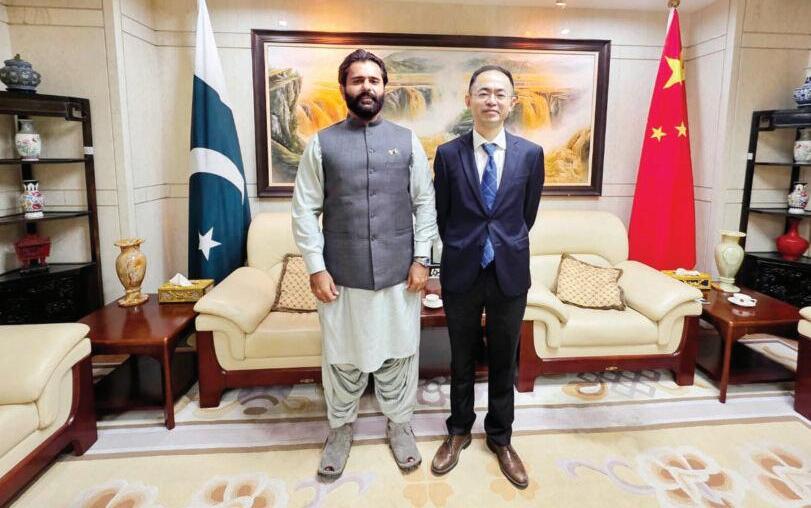US President Donald Trump said on Thursday his administration struck a deal with Pakistan in which Washington will work with Islamabad in developing the South Asian nation’s oil reserves
“We have just concluded a Deal with the Country of Pakistan whereby Pakistan and the United States will work together on developing their massive Oil Reserves, Trump wrote on social media
We are in the process of choosing the Oil Company that will lead this Partnership ” Trump’s social media post did not provide further details on the deal between the U S and Pakistan The Pakistani embassy in Washington had no immediate comment
Last week, Pakistani Foreign Minister Ishaq Dar said the U S and Pakistan were “very close” to a trade deal that could come within days after he met with Sec-
retary of State Marco Rubio on Friday Dar and Rubio had discussed expanding trade and ties in critical minerals and mining, both sides said Other Pakistani officials have also visited the U S in recent weeks for talks Under Trump Washington has attempted to renegotiate trade agreements with many countries that he threatened with tariffs over what he calls unfair trade relations Many economists dispute Trump’s characterization U S total goods trade with Pakistan was an estimated $7 3 billion in 2024 according to the website of the office of the U S trade representative, up from round $6 9 billion in 2023 The U S goods trade deficit with Pakistan was $3 billion in 2024 a 5 2% increase over 2023 Washington has also aimed to build stronger ties with Asian powers in recent years to counter its rival China s influence in the region Pakistan is designated by Washington as a major non-NATO ally Trump also said Washington was still
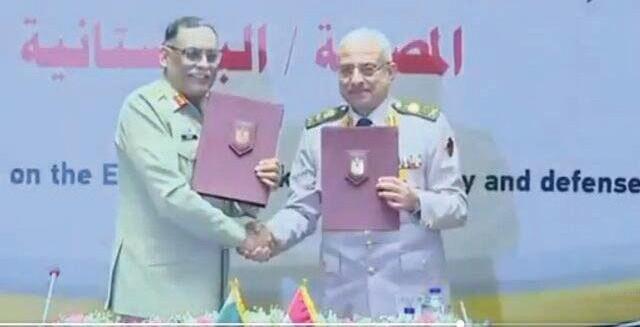
Pakistan, Egypt vow to expand militar y-to militar y relationship
RAWALPINDI
s ta f f r e p o r t
Chairman Joint Chiefs of Staff Committee (CJCSC) General Sahir Shamshad Mirza, while on an official visit to Egypt for the 3rd round of Defence and Security Talks called on Egyptian President Abdel Fattah el-Sisi according to the military s media wing Besides he met with General Abdel Mageed Ahmed Abdel Mageed Saqr, Minister of Defence and Military Production and Commander-in-Chief of Egyptian Armed Forces, Admiral Osama Mounier Mohamed Rabie Chairman and Managing Director of the Suez Canal Authority and Professor Dr Ahmed Mohamed Ahmed El-Tayeb Grand Imam of Al-Azhar the InterServices Public Relations said in a statement issued on Thursday Discussions focused on bilateral military cooperation, security, counterterrorism, and prevailing regional situation Dignitaries from both sides emphasized upon the shared interest in further strengthening and expanding existing military-tomilitary relationships in the domains of training joint military exercises and defence cooperation While interacting with His Eminence Professor Dr Ahmed Mohamed Ahmed El-Tayeb, Grand Imam of AlAzhar, CJCSC highlighted the importance of religious and interfaith harmony to promote tolerance inclusivity and address underlying causes of terrorism
PR OFIT
negotiating with Pakistan s rival India on trade after announcing earlier in the day the U S will impose a 25% tariff on goods imported from India starting on Friday Pakistan has also recently said it “appreciated the pivotal role” by Trump and Rubio “in de-escalating tensions between Pakistan and India by facilitating a ceasefire Trump has repeatedly taken credit for the India-Pakistan ceasefire he announced on social media on May 10 after Washington held talks with both sides India disputes Trump’s claims that the
ceasefire resulted from his intervention and trade threats India s position is that New Delhi and Islamabad must resolve problems directly with no outside involvement The latest escalation in the decadesold India-Pakistan rivalry was triggered by a deadly April 22 militant attack in India-administered Kashmir that India blamed on Pakistan Islamabad denied responsibility India struck Pakistan on May 7 and the two nations exchanged hostilities until the ceasefire was declared on May 10
PM reaffirms govt ’s resolve to eradic ate scourge of terrorism from countr y
ISLAMABAD
s ta f f r e p o r t
Prime Minister Shehbaz Sharif on Thursday said the government was implementing a comprehensive and effective strategy to “completely eliminate” Fitna al-Hindustan and Fitna al-Khawarij and other such outfits reaffirming the resolve to eradicate the scourge of terrorism from the country Premier Shehbaz Sharif was chaired a meeting of the Steering Committee on Counter-Terrorism and Establishment of the State Writ (Harden the State) at the PM House on Thursday, a statement issued by the Prime Minister s Office (PMO) said The meeting was attended by Deputy PM and Foreign Minister
Muhammad Ishaq Dar, Chief of Army Staff (COAS) Field Marshal
Syed Asim Munir National Security Adviser Lieutenant General Muhammad Asim Malik PM aide Rana Sanallah, the four provincial chief secretaries and police chiefs, ministers, and officials “Pakistan is working on a comprehensive, effective and workable strategy to completely eliminate Fitna al-Hindustan Fitna al-Khawarij and other such anti-social elements, the statement quoted PM Shehbaz as saying He said the state was determined to eradicate and uproot the scourge of terrorism adding that even the world recognized Pakistan s successful operations against terrorists
The prime minister said the state
had adopted a “multi-pronged strategy” in the war against terrorism and made “full and effective use” of important elements such as ground operations legislation meaningful public communication, and discouraging extremist thinking
The prime minister directed the committee to ensure effective coordination between the federal and provincial governments against terrorism and to strictly implement the recommendations of the committee in this regard Lauding the role of security personnel and law enforcement agencies, he said the provincial governments Intelligence Bureau Ministry of Interior and Counter-Terrorism Department had taken very effective steps in the war against terrorism
‘Black d ay for democrac y ’: Barrister gohar says to challenge aTC verdic t
Tehreek-e-Insaf (PTI) leaders including Omar Ayub Shibli Faraz and Zartaj Gul to 10 years in prison over their involvement in cases related to the May 9 2023 violence In the case related to the attack on a sensitive institution, the court awarded punishments to 108
3-year prison sentence which is the shortest sentence given by the court The Faisalabad ATC acquitted Fawad Chaudhry, and Zain Qureshi, the son of Shah Mahmood Qureshi and 75 others in the cases In a separate case registered at Ghulam Muhammadabad
who is
and
in hiding to avoid arrest Earlier on Thursday the ATC issued arrest warrants for 50 PTI leaders in connection with various protest-related cases The arrest warrants were issued for those involved in the protests leading to PTI’s planned August 5 protest
warrants include prominent names such as former President Arif Alvi Abdul Qayyum Niazi Shibli Faraz Faisal Javed, Salman Akram Raja, Rauf Hassan, Murad Saeed, and Ahmad Niazi Other PTI leaders facing arrest include Khyber Pakhtunkhwa (KP) Chief Minister
Shauzab, Shandana Gulzar and Sher Afzal Marwat In connection with the Faizabad protest
case, which pertains to the demonstrations held over former prime minister Imran Khan’s disqualification the court maintained that the status of Ali Amin Gandapur as a proclaimed offender remains unchanged The court ordered Islamabad Police to arrest Gandapur stating that the arrest warrants remain in effect
The court also directed that if there are any orders from the Peshawar High Court, they must be complied with In the March 18 protest case the ATC issued an arrest warrant for PTI MNA Ali Afzal Sahi
The court also issued arrest warrants for other PTI workers who failed to attend the hearing in the case registered at Golra Police Station The hearing for the case registered at Golra Police Station has been adjourned until August 9 In the November 26
who have been convicted today do not believe in politics of violence ” He added We made every effort to keep democracy and parliament functional but the oppression injustice, and unequal treatment continue relentlessly Six of our MNAs, three MPAs, one senator, and the oppo-
and storage facilities were full Despite these warnings, the federal government moved forward with the import causing logistical issues storage problems and economic distortion in the agricultural market The audit recommends a comprehensive review of the wheat procurement and import policy by the Ministry of National Food
1011 PCT codes has been revised with a 50% reduction on 473 codes and a 20% reduction on 538 codes The maximum RD rate has been lowered from 90% to 50% Additionally, the RD on plums has been set at 28%, regardless of their PCT codes, and FBR has instructed collectors to ensure correct application of these duties
PM reaffirms govt ’s resolve to eradic ate scourge of terrorism from countr y
CONTINUED FROM PAGE 01
“With the joint actions and cooperation of all the relevant institutions effective actions were taken against smuggling which made it possible to prevent it ” he said adding that preventing the issue had a positive impact on the economy The prime minister said that only a peaceful and strong state structure free from terrorism could restore the confidence of investors at the international level, adding that the government had brought substantial changes such as the digitisation of all systems and improvement in the tax system for this end
Pointing to the performance of the Pakistan Stock Exchange, he said the record increase in its index and the improvement in the country s global ratings indicated the economy’s stability and would restore the confidence of foreign investors PM Shehbaz also said that the implementation of the repatriation programme for Afghans residing illegally in the country was also continuing effectively in accordance with international laws
Field Marshal Munir had, similarly, a day ago reaf-
firmed the military s resolve to eradicate the menace of terrorism from the country underscoring the nation s preparedness to respond decisively to any external or internal threats
According to a statement from the Inter-Services
Public Relations, the army chief was speaking to a group of stakeholders at the 16th National Workshop in Balochistan
The COAS resolutely reaffirmed Pakistan Army s unwavering commitment to uproot the menace of terrorism and [the] inevitability of socio-economic uplift of Balochistan for national cohesion and integration, the statement had said Pakistan has been grappling with an alarming surge in terrorism especially in Khyber Pakhtumkhwa and Balochistan since the banned Tehreek-i-Taliban Pakistan (TTP) ended its ceasefire deal with the government in November 2022, vowing to increase attacks
In response, the government labelled the group as Fitna al-Khawarij and directed use of the term khariji for attackers It later designated Balochistan-based groups as Fitna al-Hindustan to highlight India’s alleged role in terrorism and destabilisation across Pakistan
COMMENT
TH E negotiations went almost down to the wire The USA’s new tariffs were due to come into effect on August 1 after having been paused by President Donald Trump himself after he announced them on April2 While the exact revision of the rate is not known, it is going to be lower than the 29 percent announced in April One indicator might be that India s April rate of 26 percent has only been reduced marginally, to 25 percent, while it has had additional tariffs placed on it for buying Russian arms and oil It should not be forgotten that when India ran afoul of poyrntial US sanctions when it purchased the Russian S400 air defence system it was spared because of its usefulness as a regional counterweight against China However, after its recent clash with Pakistan over the Pahagam incident, its usefulness to the USA has been thrown into doubt Meanwhile, the pillar of the deal with Pakistan has come from the rather unexpected quarter of oil exploration with a US firm to be selected to explore Pakistan s coastline in his post on the Internet, Mr Trump even remarked: Who knows, maybe they ll be selling oil to India before long Certainly, India would be a potential customer for any exportable surplus, but Mr Trump should keep in mind the fate of the gas pipeline from Iran which was to go to India after passing through Pakistan That has fallen victim to US sanctions on that unfortunate country It does seem that though Mr Trump has allowed geopolitical considerations to influence the tariff reduction process The extra ‘anti-Russian’ tariffs on India are explicitly geopolitical in nature, and have nothing to do with fairness or nontariff barriers which Mr Trump also accused India of imposing Pakistan on the other hand has escaped anti-Chinese tariffs Not imposing was itself a geopolitical decision, which the USA has probably taken because it has taken into account the events of June
In some ways, the deal was the easy part Now will come the rather more difficult task of defending it to the people in the teeth of the criticism it is likely to provoke especially among those who have been calling on the USA to help them return to power, after it allegedly conspired to oust them The government will claim it got the best possible deal under the circumstances, which does not mean that it was the best possible deal for the country
Dedicated to the legac y of late Hameed Nizami Arif Nizami (Late) Founding Editor
M A Niazi Editor Pakistan Today Babar Nizami Editor Profit
TThe leadership pipeline is drying up While several banks have revised their retirement policies to extend the upper age limit for senior management to 65 the ranks below are underdeveloped This is not merely about age, it s about succession, preparedness, and institutional renewal Many mid-career professionals feel stalled, unable to see a clear trajectory At the same time lower-tier staff often recruited through outdated rigid methods struggle to find relevance and direction The entry benchmark is still centered on a basic graduation degree, with little regard for evolving skill sets, emotional intelligence, or leadership potential
“We’ve built strong systems but weak successors ” remarked an HR executive at a large local bank The problem isn t lack of awareness it s the absence of deliberate strategy Recruitment processes remain formalistic Onboarding is mechanical There is performance evaluation, but rarely performance cultivation Leadership is extended, not developed Talent is retained but not empowered Professional growth in many cases depends on inertia or compliance not curiosity or initiative
will be institutional. The future of PakistanÊs banks wonÊt be defined by code . It will be defined by character.
M O N G the most potent symbols of how Pakistan’s profile has changed to the rest of the world since the clash with India over Pehelgam have been the visit to the USA of Deputy PM and Foreign Minister Ishaq Dar, to China of Chief of Army Staff Field Marshal Asim Munir, and then his hosting the Regional Chiefs of Defence Staff Conference in Islamabad They also symbolize the care with which Pakistan is treading the fissure line between the USA and China as it tries to ensure that it remains on the right side of both It should not be ignored that Field Marshal Asim figures in all three interactions in the last two directly, and earlier in Washington to pave the way for Mr Dar It is also worth noting that while Field Marshal Munir met US President Donald Trump on his visit Mr Dar did not go beyond a meeting with Secretary of State Mark Rubio In a way the Islamabad conference was very important Military conversations can assume great significance The most prominent example is that of the pre-World War I military conversations between the French and British general staffs, which led to a British Expeditionary Force of six infantry divisions and five cavalry brigades being sent to France after the German attack on France violated Belgian neutrality It might be noted that there was a political decision by the British government to end its ancient rivalry with France, but there was no treaty, no prior agreement, just military conversations The conference concentrated on counter-terrorism, but it worth noting that it was attended by all three members of the Northern Distribution Network which the USA used in place of the routes given by Pakistan for its forces in Afghanistan after the 2011 Salala incident, in which 28 Pakistani soldiers were killed by US aircraft at the Salala check-post Uzbekistan, Kazakhstan and Tajikstan were all represented, with only Tajikistan among the attendees not involved in the incident The meeting was not really against China not with Pakistan hosting and Kazakhstan in particular attending but the presence of the USA meant that it was not really a pro-China or even pro-Russia meeting Like Pakistan, the Central Asian Republics at the meeting would like to maintain good relations with both the USA and China Their ability to do so, like Pakistan’s will depend on the USA and China Neither is at the stage of forcing others to choose However the Pehalgam episode has persuaded the USA that its attempt to use India as a regional counterweight to China has failed India has shown that it is not able to take on Pakistan, let alone Pakistan Its claims that Pakistan was enabled by Chinese technology, and even its direct assistance, hotly denied by Field Marshal Munir, still show that China would wipe the floor with it The USA thus would not want a direct confrontation with China because it has no counter weight in the region Pakistan is not really an option no matter
In town halls junior staff often speak in carefully measured tones Lateral dialogue between generations is rare The culture that once encouraged storytelling, coaching, and constructive challenge has been replaced by tight timelines and silent conformity Amid this stagnation AI has emerged not just as a support tool but increasingly as a substitute From customer queries to credit scoring and compliance flagging, automation has made operations faster and cleaner There s nothing wrong with embracing technology But there is something deeply flawed in assuming that algorithms can replace judgment ethics or institutional memory AI cannot read human intent It cannot understand context It cannot assess trust AI can score credit but it can t build culture The deeper risk is structural: technology is advancing faster than leadership is evolving That imbalance is dangerous The more we rely on systems the more we need principled insightful humans to guide them Yet we are investing more in platforms than in people more in automation than in accountability Layered onto this is a widening generational disconnect Senior leaders, often from paperdriven risk-averse backgrounds struggle to connect with the digitally fluent fast-paced expectations of younger professionals The language is different The priorities are different The rhythm is different Innovation suffers Frustration grows And competent individuals quietly exit the system, leaving behind gaps that algorithms cannot fill In today’s banking landscape loyalty has become transactional Talent retention is a revolving door Institutional memory erodes with each departure And in many cases expertise is replaced with speed, not substance Behind every resignation is often an untold story, a project shelved without explanation, a manager too busy to notice promise a performance review that reduced potential to a rating These quiet exits hurt institutions more than they realize because what walks out is
how much some might want it, because it has too close ties with China to abandon it No other state is really powerful enough India is not going to take the revision of its position lying down It had hoped to replace China at some future date as a challenger to the USA, but at present it wanted the US alliance badly, because it coincided with several Indian aims, not least because it was friends with Pakistan and Pakistan relied on US support against India Pakistan has got quite a limited agenda It wants to ensure that India does not spoil the trade deal it has made with the USA It also wants to prevent Indian defence cooperation with the USA reaching the point where it is sold cutting-edge technology It would also like to persuade the USA to stop India assassinating people on its soil One consequence is that India might try to prove a point by increasing covert activity against Pakistan Going by the past it will try to get help from Iran and Afghanistan, but it might not be so easy As US pressure mounted, Iran and India grew increasingly further apart, to the point that India pulled out of the Chabahar port project virtually causing its collapse During Iran’s recent war with Israel it received no Indian support The opposite if anything as India supported the USA Pakistan has thrown its hat in the ring and offered to help the USA and China reconcile History does not support the view that this gets much benefit Pakistan facilitated Nixon’s 1972 trip to China, playing a key role in Kissinger ’s secret visit to China before that in July 1971 The story goes that Kissinger supposedly went down with a sudden and brief illness while on a visit to Pakistan Under its cover he made a quick visit to China
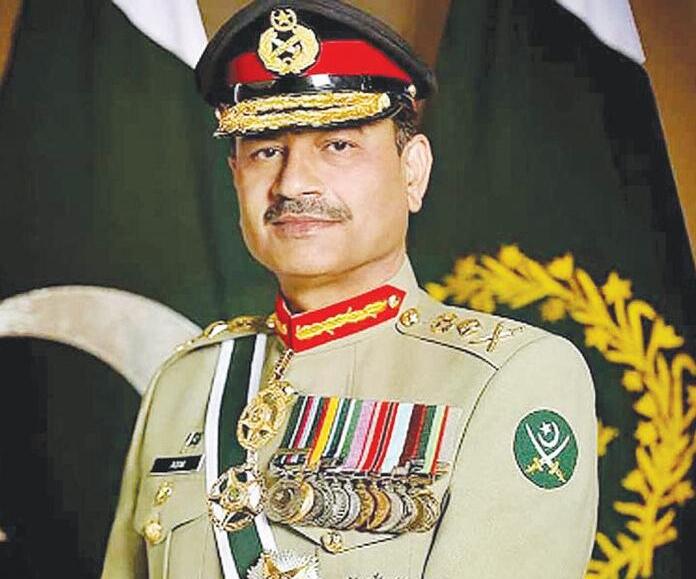
not just a resource it s perspective continuity and credibility The human cost is quietly rising Talented professionals, who once saw banking as a lifelong career, now see it as a temporary stopover The sense of calling that once defined the profession is being replaced with metrics dashboards and tight compliance scripts In branch offices you no longer hear seniors guiding juniors over casual tea breaks; you see screens, forms, alerts The rhythm of learning has been interrupted The culture of shared accountability is thinning
Yet not all is lost A few institutions have begun to act by inviting staff to town halls visiting branches and creating spaces where feedback is welcomed, not feared These visible, open, and responsive leaders are still the exception but they must become the norm I once met a branch manager in a secondtier city who despite limited resources had taken it upon himself to mentor every new officer who passed through his branch His reasoning was simple: If I don t pass on what I know, this place won t last That is leadership not designated by title but demonstrated by intent In a world obsessed with automation, he chose human connection In an era of templates he led by presence The path forward lies in humanizing the system again Succession planning must become intentional Recruitment should evolve to identify leadership potential, not just academic credentials Training must be embedded in culture, not outsourced to policy Performance must include reflection not just rating People must matter again
Until we invest in human capital with the same urgency as digital capital the biggest disruption won t be technological it will be institutional
The future of Pakistan’s banks won’t be defined by code It will
Hygiene for hawkers
Trump’s Nobel Nomination in context

TA K E N together, US President Trump’s crisis management in 2025 represented a significant shift in the art of modern deterrence: an assertive posture underpinned by economic coercion clear military signalling and simultaneous diplomatic engagement In South Asia, he effectively defused a nuclear crisis between India and Pakistan by strategically weaponizing trade incentives In the Middle East he prevented an Iran-Israel conflict from igniting a full-scale regional war through a calculated mix of sanctions military readiness and discreet backchannel diplomacy In both theatres, Trump s improvisational approach, his willingness to engage directly with foreign leaders, and his readiness to apply unconventional pressure decisively altered the calculations of all parties involved Pakistan s decision to nominate Donald Trump for the Nobel Peace Prize has drawn a spectrum of reactions, with proponents viewing it as a judicious strategic move and detractors expressing opposition A thorough understanding of the implications for Pakistan’s national interests is essential The relationship between the USA and Pakistan has historically been characterized by its complexity oscillating between periods of strategic partnership and mutual suspicion Nevertheless, the USA remains an exceptionally significant actor in Pakistan’s foreign policy considerations not only due to its expansive global influence but also its considerable capacity to shape international narratives economies and security paradigms The importance of the USA for Pakistan cannot be overstated, particularly concerning economic assistance, military cooperation, counterterrorism support, international diplomacy, and access to crucial global financial institutions such as the International Monetary Fund (IMF) and the World Bank For several decades Pakistan has relied on US engagement to bolster its security capabilities, enhance its economic resilience, and maintain a balanced geopolitical posture, especially amid its persistent tensions with neighbouring India and the volatile situation in Afghanistan In this intricate context any step taken by Pakistan that positively influences its relationship with the USA carries substantial potential for long-term strategic and eco-
nomic gain For instance between 1948 and 2017 the USA provided Pakistan with over $30 billion in economic and military assistance This underscores Pakistan s historical reliance on US support Pakistan s formal nomination of Trump is within this broader framework While superficially, this nomination might appear merely symbolic or even unconventional given Trump s often polarizing global image it is in fact a highly calculated diplomatic manoeuvre with profound strategic undertones Trump in 2025 played a demonstrably pivotal role in de-escalating critical tensions in both South Asia and the Middle East Pakistan having directly benefited from Trump’s timely intervention in South Asia perceived his ole as not only valuable but also worthy of international recognition By formally nominating him, Pakistan has extended a gesture that serves multiple layers of diplomacy: it acknowledges and rewards Trump’s decisive actions, implicitly aligns itself with his administration’s foreign policy orientation and explicitly signals a willingness to rebuild a mutually beneficial strategic relationship with the USA
Islamabad astutely identified an opportune moment to reposition itself favourably by extending this nomination an act that not only flatters Trump’s known penchant for recognition but also strategically sets the stage for re-engagement on more amicable terms
By adopting this approach Pakistan skillfully leverages personal diplomacy to influence broader geopolitical relations, a tactic that has proven increasingly effective in the contemporary age of leader-centric global politics
The anticipated benefits for Pakistan extend across several domains First and foremost it opens the door for renewed economic engagement Trump has consistently emphasized trade deals and robust economic partnerships in his foreign policy agenda A
Pakistan that is perceived as appreciative of his leadership and supportive of his global peace narrative stands a considerably greater chance of advantageous bilateral trade improvements, potential tariff reductions, or participation in economic cooperation projects under various US development initiatives
Moreover, Trump’s administration has historically demonstrated skepticism towards multilateral institutions and a greater openness to direct bilateral deals with countries that exhibit friendship or strategic alignment
Pakistan s nomination can thus be interpreted as a crucial diplomatic olive branch that may well soften US views toward Islamabad in critical areas such as military aid crucial counterterrorism cooperation and access to advanced technological resources
Secondly the nomination plays a profoundly important role in shaping Pakistan s perception and image in Washington It serves to cast Pakistan not as a disruptor or a nation perpetually associated with instability, but rather as a responsible international actor that actively recognizes and rewards peace-building efforts In the intricate world of diplomacy perception itself is a powerful currency When Pakistan is viewed as a proactive advocate for peace and international diplomacy even through Trump it strategically positions itself as a constructive and valuable member of the global community This improved perception can in turn significantly enhance Pakistan s standing in the eyes of influential US lawmakers, influential think tanks, and US public opinion, which collectively influence critical areas such as aid packages, defence collaboration, and vital multilateral support
Beyond the immediate economic and image-building benefits the nomination may also yield significant strategic advantages for Pakistan s regional interests Trump has consistently demonstrated a willingness to engage personally and directly in high-stakes
This nomination does not imply PakistanÊs endorsement of any unfair US actions Rather, Pakistan continues to courag eously and unequivocally speak out against injustice and aggression globally. Pakistan steadfastly maintains its condemnation of IsraelÊs aggression on Gaza and fully suppor ts the Kashmir cause .
diplomatic conflicts His administration had previously offered to mediate in the longstanding Kashmir dispute and his decisive 2025 intervention demonstrably helped prevent a catastrophic escalation between India and Pakistan By formally nominating him for the Nobel Peace Prize, Pakistan strategically lays the groundwork to potentially revive the conversation on US-led mediation in South Asia a conversation that Pakistan has long desired and which India has consistently rejected
Even if a formal mediation does not immediately materialize, Pakistan’s proactive diplomatic gesture effectively keeps the issue alive and salient within international circles and aligns the country with a US leadership that appears at least willing to entertain the notion of balanced conflict resolution in this sensitive region
Furthermore, the nomination significantly contributes to a crucial long-term strategic balancing act within Pakistan’s foreign policy Improved relations with the USA provide Pakistan with much-needed diversification in its foreign partnerships This diversification inherently reduces strategic dependency on any single country and consequently allows Islamabad to extract more favourable terms in negotiations with all major global powers including the Gulf states the European Union and Russia thereby enhancing its overall diplomatic maneuverability
In the critical realm of security and defense, renewed cooperation with the USA can significantly enhance Pakistan’s counterterrorism capabilities and improve its access to advanced military equipment While the USA has notably scaled back some military assistance to Pakistan in recent years a potential reset under a Trump administration facilitated by goodwill gestures such as the Nobel nomination could reverse this trend Pakistan’s military establishment highly values US technology and intelligence-sharing frameworks which have historically proven vital in its ongoing fight against terrorism and various insurgencies A stronger military partnership, even if modest in scope, would also serve as a crucial deterrent against regional aggression and significantly bolster Pakistan’s internal security infrastructure
Critics of this diplomatic manoeuvre might contend that nominating a polarizing figure like Donald Trump for such a prestigious global award risks diplomatic backlash or could undermine Pakistan s credibility in certain international circles However, Pakistan’s foreign policy has historically been deeply rooted in pragmatism rather than strict ideological alignment The country has successfully navigated complex relationships with both Western and Eastern powers
often prioritizing its national interest over immediate international perception In this context the Trump nomination should not be viewed as an ideological endorsement but rather as a shrewd strategic gesture a calculated act aimed at maximizing future gains in a complex world where diplomatic gestures can indeed carry far-reaching and substantial consequences Moreover
prioritize Pakistan over India This nomination has
provided Pakistan with several strategic advantages the most prominent being Washington s implicit acknowledgment of Pakistan as an important and indispensable country on the global stage Pakistan’s perceived recent success against India, in part facilitated by Trump’s intervention has seemingly altered global perceptions enabling Pakistan to interact with the world on a more

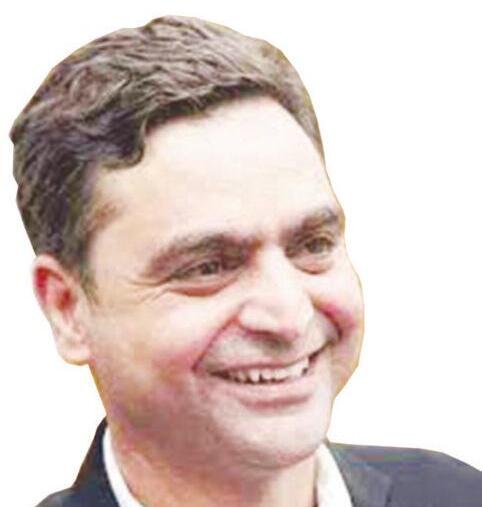
CHINESE Premier Li Qiang announced last week the launch of a monumental dam project on the Tibetan Plateau that is set to become the largest hydroelectric facility in the world according to Chinese media Situated on the lower stretches of the Yarlung Tsangpo River the project has sparked concerns about potential downstream effects on water availability and environmental sustainability in India and Bangladesh On July 19, Li, while justifying the launch of the construction of a dam over the Brahmaputra River in the ecologically fragile and sensitive Tibet region allayed apprehensions over its possible bearing in the midstream and lower riparian countries such as India and Bangladesh China says the dam project, costing an estimated $167 billion, will ensure ecological protection and enhance local prosperity Earlier this month, the chief minister of the Indian state of Arunachal Pradesh Pema Khandu described the Chinese dam project on the river which in India is largely referred to as the Brahmaputra as a ticking water bomb and a matter of grave concern
Over 3,000km from Arunachal Pradesh, in the hushed conversations of the Kashmir Valley, people are quietly speculating that the next war between India and Pakistan may be fought over Kashmir s waters
“ACT OF WAR”: After the April 22 terrorist attack in the picturesque Baisaran valley in Pahalgam, Indian Occupied Kashmir, New Delhi put the Indus Waters Treaty (IWT) of 1960 in abeyance In a tit-for-tat response Islamabad suspended the Simla Agreement of 1972 and described India s action as an act of war The IWT brokered by the World Bank was signed in Karachi on September 19, 1960 It is a waterdistribution agreement between India and Pakistan that had survived for the last 65 years but has been suspended for the first time by India
According to the IWT both countries can use the water available in the Indus River and its tributaries Pakistan is granted rights to the Indus Basin s western rivers – Indus, Jhelum, and Chenab – for irrigation, drinking, and non-consumptive uses (hydropower) India
inter-basin water transfer plan to possibly divert surplus flows from Indian Occupied Kashmir waters to the northern Indian states of Punjab and Haryana, and even to Rajasthan Media reports indicate that New Delhi aims to maximize the benefits of the Indus River waters A feasibility study is being conducted to explore the possibility of constructing a 113-km-long canal that would redirect surplus flows from Kashmir to other states Predictably, this proposal has not gone down well with either Islamabad or Kashmir-based political groups Besides triggering a war of words between the major Unionist political formations of Kashmir and Punjab this project is likely to instigate new interstate water disputes It also has geopolitical ramifications Pravin Sawhney, a former India Army officer, prominent strategic and defense expert and author, told RT that any violation of the IWT would be an act of war from Pakistan’s perspective “Stopping water flow to Pakistan or diverting Kashmir waters to other states in violation of the IWT will be considered an Act of War A war that India cannot win because of China and Pakistan being iron-clad friends, Sawhney said CLASH OVER WATER: However, after the Pahalgam incident New Delhi hardened its position vis-à-vis Islamabad On a visit to the state of Madhya Pradesh last month Indian Home Minister Amit Shah said Indus waters will be taken to Rajasthan s Sri Ganganagar through canals within three years He also claimed that Pakistan will be left “craving for every drop of water ” Similar statements have been made by other Indian politicians
HOW DOES ISLAMABAD PERCEIVE
THIS THREAT? In a recent interview with The Wire, former Pakistani Foreign Minister Bilawal Bhutto-Zardari spoke in favor of a comprehensive dialogue between the two countries on all outstanding issues including the Kashmir dispute and water terrorism India is threatening to cut off the water supply to 240 million people of Pakistan to starve the Indus Valley civilization a shared culture, history and heritage This goes against everything that used to be Indian It goes against the philosophy of (Mohandas Karamchand) Gandhi It goes against all that we have been taught about India as a secular country ” In earlier interviews Bhutto warned of serious ramifications if the water flow was stopped to Pakistan, a low riparian state During the National Assembly s budget session in Pakistan last month, he accused the current Indian government of violating international law by unilaterally suspending the IWT The Hague-based Permanent Court of Arbitration recently ruled that New Delhi s decision to suspend the IWT did not deprive the court of its competence to deliver judgment on Pakistan s complaints against India New Delhi has opposed the proceedings of the Court of Arbitration ever since its creation by the World Bank in October 2022 The Indian Ministry of Ex-
ternal Affairs in a statement on June 27 called the move the latest charade at Pakistan s behest New Delhi s plan to reroute Kashmir s waters potentially complicates geopolitical tensions between the two rivals whose 78-year-old history has witnessed major wars intense and prolonged periods of escalation during the 1999 Kargil conflict and more recently the standoff in May 2025 Rao Farman Ali, the author of Water, Polity and Kashmir , argues that the international community will not allow another war between Pakistan and India given that both are nuclear powers “Rhetoric on either side won’t help There is a need to handle sensitive issues such as the Indus Waters Treaty with caution and foresight and the key lies in resolution of the Kashmir dispute Ali told RT He added that the IWT s potential as a sustainable peace-building structure remains unexploited Meanwhile, he favors a win-win situation for China Pakistan and India as a result of a potential agreement between all stakeholders “A trilateral 1 2 3 Agreement between China India and Pakistan focusing on the immediate demilitarization of the Siachen Glacier – the vital blue crystal feeding the Indus (Neelam-Kishanganga) – is an urgent imperative,” he said, adding that suspending the IWT would trigger another conflict and that perpetual Pakistan-India acrimony is unaffordable and unreasonable Chinese experts meanwhile have warned New Delhi against any potential plans to divert waters Victor Gao, chair professor at Soochow University and expert on international relations, said in an interview with India Today that Beijing will have to step in if New Delhi and Islamabad are not able to “come up with an equitable way of allocating the water We really do not want to see the way the Indian government is diverting water from the Indus river, depriving the Pakistani people in the downstream of the benefit of water We do not like it at all And we warned the Indian government not to do that because there will be consequences if the Indian government continues to deny water to the people in Pakistan on the downstream he asserted arguing the India is a midstream country and that China is the real upper stream country Gao, who is known to be close to the Chinese establishment, said that denial or diversion of water to mid-stream or low riparian states will have consequences “Don’t do unto others what you do not want others to do unto you India is not really in the upper stream India is a midstream country So be peaceful with your neighbor rather than engaging in a political spectacle, he warned in a 25-minute-long interview China
Unlike a bank note, it could reside on a smar tphone and travel like a tex t message, reaching Budapest from
in an instant If the European Parliament approves, the first transac tions could happen before the end of the decade
aBdul Basit alvi
p p r o a c h , d a t a w e r e c o l l e c t e d t h r o u g h
s a n d i n
i n t e r v i e w s w i t h u n d e rg r a d u a t e s t u d e n t s a c r o s s v a r i o u s d i s c i p l i n e s F i n d i n g s i n d i c a t e a s t r o n g c o r r e l a t i o n b e t w e e n h i g h l e v e l s o f f a m i l y s u p p o r t a n d l o w e r l e v e l s o f a n x i e t y d e p r e s s i o n a n d p e r c e i v e d s t r e s s S t u d e n t s w h o r e p o r t e d c o n s i s t e n t e m o t i o n a l e nc o u r a g e m e n t a n d o p e n c o m m u n i c a t i o n w i t h f a m i l y m e m b e r s d e m o n s t r a t e d g r e a t e r r e s i l i e n c e a n d a s t r o n g e r s e n s e o f s e l f - e f f i c a c y I n c o nt r a s t a l a c k o f f a m i l i a l s u p p o r t w a s a s s o c i a t e d w i t h i n c r e a s e d f e e l i n g s o f i s o l a t i o n b u r n o u t a n d v u l n e r a b i l i t y t o m e n t a l h e a l t h i s s u e s T h e s e r e s u l t s u n d e r s c o r e t h e i m p o r t a n c e o f f o s t e r i n g p o s i t i v e f a m i l y r e l a t i o n s h i p s a n d i n t e g r a t i n g f a m i l y e n g a g e m e n t i n t o m e n t a l h e a l t h s t r a t e g i e s f o r y o u n g a d u l t s T h e s t u d y a d
MOSCOW ag e n c i e s
After an 8 8-magnitude earthquake off the eastern Russian coast sparked tsunami warnings throughout the Pacific millions of evacuees were allowed to return home with only one total death resulting from Tuesday s initial shock Tsunami warnings were lifted across the Pacific rim on Wednesday, allowing millions of temporary evacuees to return home
After one of the strongest earthquakes ever recorded rattled Russia s sparsely populated Far East more than a dozen nations – from Japan to the United States to Ecuador – warned citizens to stay away from coastal regions
Storm surges of up to four metres (12 feet) were predicted for some parts of the Pacific after the 8 8 quake struck off Russia s Kamchatka peninsula
The tsunamis caused widespread disruption Peru closed 65 of its 121 Pacific ports and authorities on Maui cancelled flights to and from the Hawaiian island But fears of a catastrophe were not realised with country after country lifting or downgrading warnings and telling coastal residents they could return In Japan, almost two million people had been ordered to higher ground, before the warnings were downgraded or rescinded The Fukushima nuclear plant in northeast Japan – destroyed by a huge quake and

order to award citations for merit to two military units and five individuals An office of Troop 63920 of the Chinese People s Liberation Army (PLA) was honored with a first-class citation for merit, while Ding Yang from Troop 92853 of the PLA received a first-class citation for merit in defense-related science and technology Troop 96712 of the PLA was awarded a second-class citation for merit Wang Haidou from the former Army Academy of Armored Forces Gao Yuqi from the Army Medical University, Yang Zichun from the Naval University of Engineering and Chen Wei from the Institute of Military Medicine under the Academy of Military Sciences were honored with third-class citations for merit in defenserelated science and technology XI SIGNS ORDER TO UNVEIL FLAG PATTERNS OF FOUR PLA BRANCHES
Xi Jinping, chairman of the Central Military Commission (CMC), has signed an order to unveil the flag patterns of four branches of the Chinese People’s Liberation Army (PLA), namely the aerospace force, cyberspace force information support force and joint logistics support force
Upon China s Army Day that falls on August 1 Xi extended festive greetings to service personnel of the PLA and the People s Armed Police Force, civilian personnel posted in the military, and members of reserve
forces and militia
The release of the branch flags marks the establishment of a military flag system of the people s army
g CM MARYAM SAYS PAK-SAUDI RELATIONSHIP BA SED ON MUTUAL TRUST, SHARED VALUES AND LONG-STANDING BROTHERHOOD
ISLAMABAD s ta f f r e p o r t
In an important move toward a cashless economy and enhanced social protection the Benazir Income Support Programme (BISP) hosted a high-level workshop today to unveil its upcoming Mobile Wallets Payment Model The initiative, supported by the European Union and the German Government is set to digitize payments for millions of vulnerable families across Pakistan
The event titled Transition to Cashless Economy: BISP Mobile Wallets Payment Model , convened senior government officials, financial regulators, telecom leaders, and development partners to discuss the transformative potential of Social Protection Wallets digital tools designed to provide secure efficient, and dignified cash transfers directly to women beneficiaries
The workshop was attended by Minister of State for Finance and Head of the Prime Minister ’s Delivery Unit Bilal Azhar Kayani BISP Chairperson Senator Rubina
Khalid and BISP Secretary Aamer Ali Ahmad, among others This is not just a policy intervention it’s a national priority,” said Kayani “BISP currently supports nearly 10 million low-income families Moving to digital payments enhances transparency and dignity while aligning with the Prime Minister s vision for a cashless economy ” Mr Bilal Azhar Kayani cited the recent rollout of the PM’s Ramzan Package executed via mobile wallets as a successful case study for scaling digital disbursements nationwide BISP Chairperson Senator Ru-
bina Khalid reaffirmed the programme s commitment to empowering women through financial autonomy “At the direction of President Asif Ali Zardari we are prioritizing transparency and dignity in how women receive support Our pilot for direct bank account opening will begin on August 14, a milestone in digital empowerment,” she announced She added that BISP’s requirement for designating the female head of household with a valid CNIC has become a game-changing safeguard for inclusion and women empowerment Every woman must have the right to
O ver 5,000 held in swoop on c arr ying illegal weapons, aerial firing
the city of illegal weapons, stating that a zero-tolerance policy is in place for illegal arms possession public display of weapons and aerial firing He instructed law enforcement
officials to maintain strict surveillance on those involved in the sale and purchase of illegal arms and to take immediate action against individuals or groups attempting to spread fear through illegal means or dala culture The CCPO also emphasized that individuals promoting weapons or aerial firing on social media platforms will face stringent legal action He urged the public to uphold the law, refrain from engaging in unlawful activities and support the police in ensuring peace and security in the city






